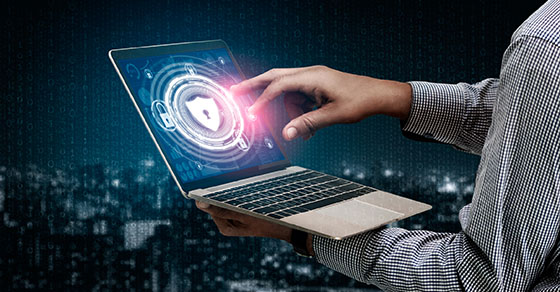
Blog
5 Cybersecurity Best Practices for Remote Workers
As remote work becomes more common, it’s important to consider the potential security risks that come with it. When employees are working from public places or their own homes, it’s essential to take precautions to protect sensitive data. Here are five habits that remote workers should adopt to stay safe.
- Choose a private work location: While working from a coffee shop or park may be tempting, it’s important to remember that public spaces can make you vulnerable to cyberattacks. Employees should opt for quieter, more private locations to minimize this risk.
- Avoid public Wi-Fi: Public Wi-Fi networks are often less secure and can leave you open to hacking. Instead, use your phone’s hotspot or a VPN for a safer internet connection.
- Invest in security software: Protective software can help safeguard against malware and cyberattacks, making it an important addition to personal and company devices.
- Keep devices updated: Regularly updating software is not only about accessing new features but also about fixing vulnerabilities that could leave your data at risk. This includes laptops, phones, routers, and other IoT devices connected to your network.
- Manage household risks: Employees should be mindful of potential data breaches even within the safety of their own homes. If they share their space with others, parental controls can help prevent accidental access to sensitive information.
By following these habits and taking other necessary security measures, remote workers can safely enjoy the benefits of working from anywhere. If you need help securing your remote setup, don’t hesitate to get in touch.
Information used in this article was provided by our partners at MSP Marketing Edge.